Understanding fractions Addition & Subtraction Worksheets for Ages 4-6
5 filtered results
-
From - To
Welcome to our "Understanding Fractions Addition & Subtraction Worksheets" designed specifically for children ages 4-6! These engaging and interactive worksheets introduce young learners to the concept of fractions, making math fun and accessible. Through colorful visuals and hands-on activities, children will develop essential skills in adding and subtracting fractions. Our materials cater to their curiosity, enabling them to grasp complex concepts in a simple way. Perfect for both parents and teachers, these worksheets encourage independent practice and early problem-solving skills essential for foundational math education. Start your child’s journey in mastering fractions today with our comprehensive resources!
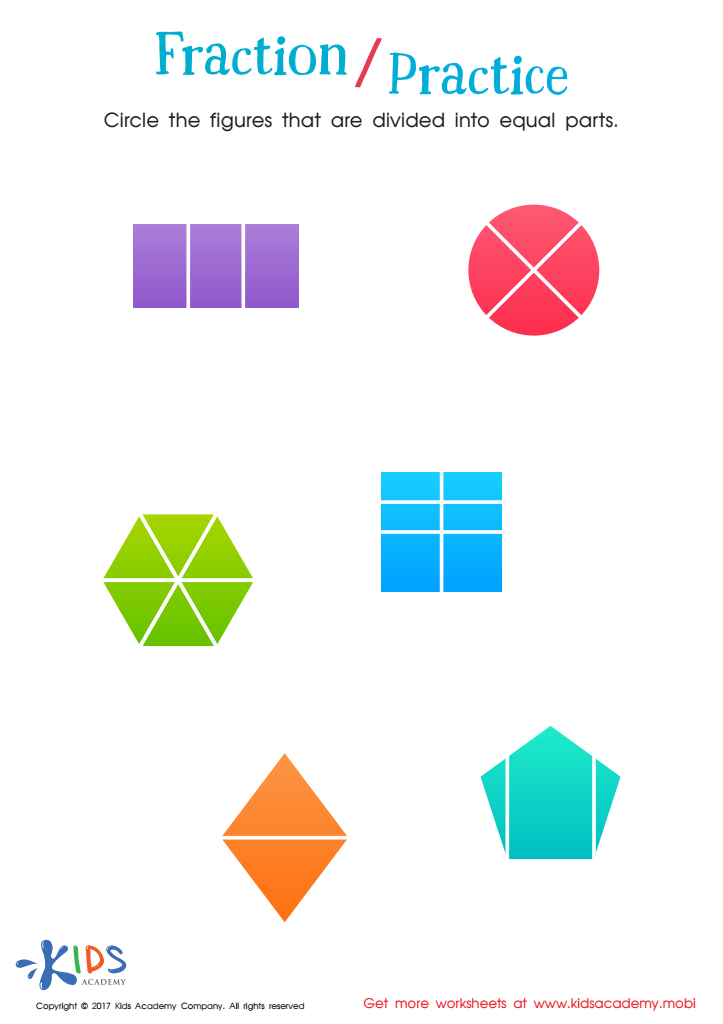

Fractions: Shapes Worksheet
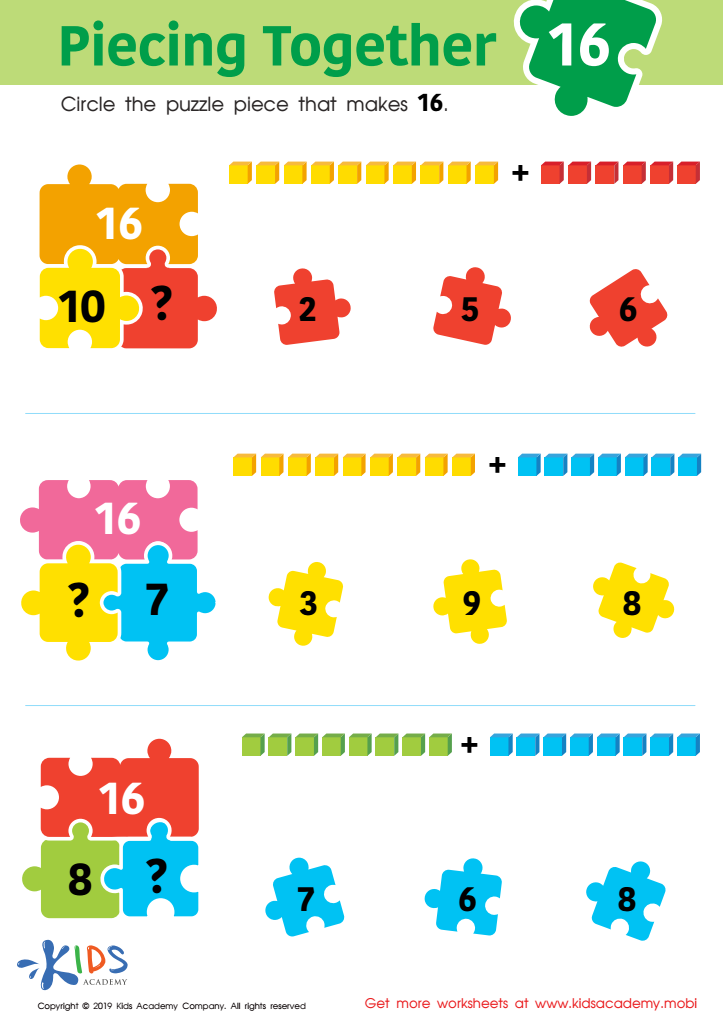

Piecing Together 16 Worksheet
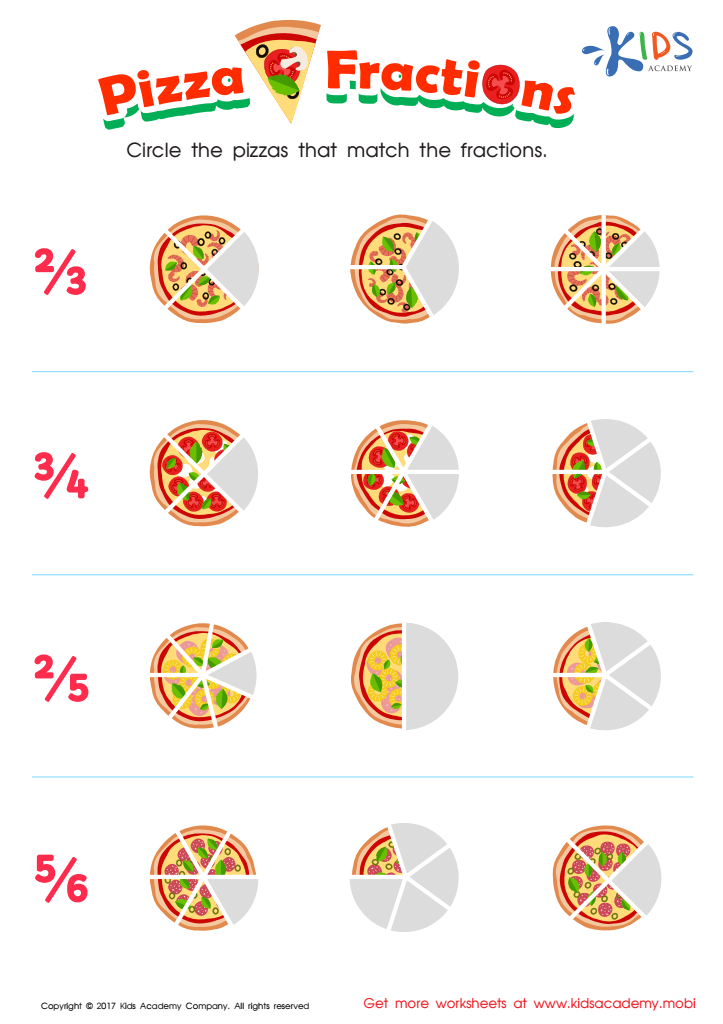

Fractions: Pizza Printable
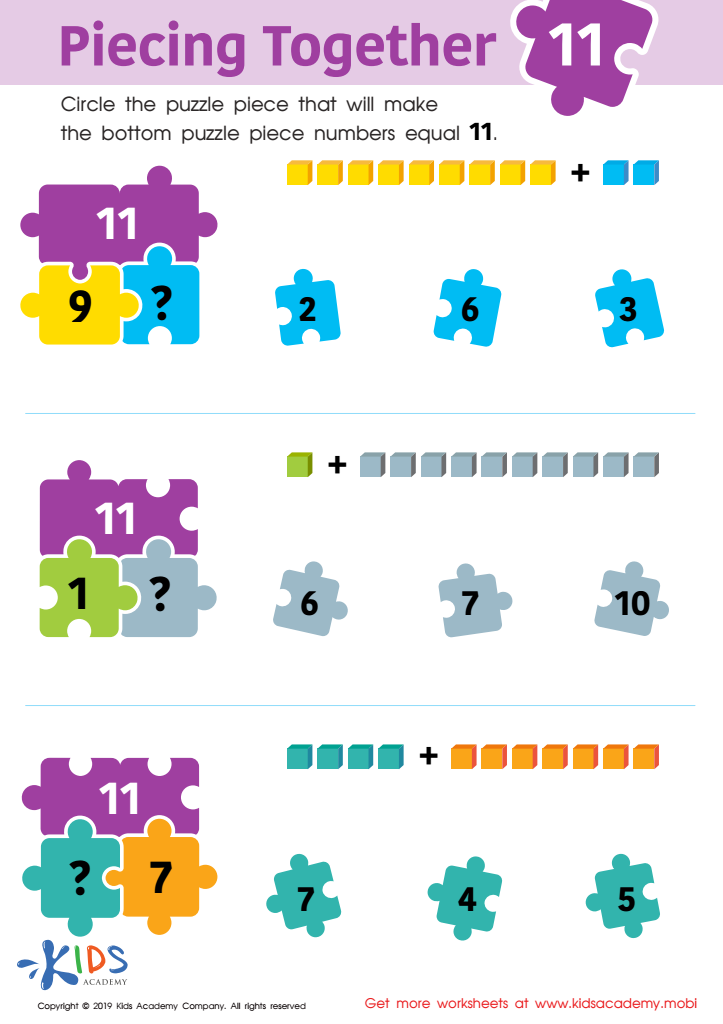

Piecing Together 11 Worksheet
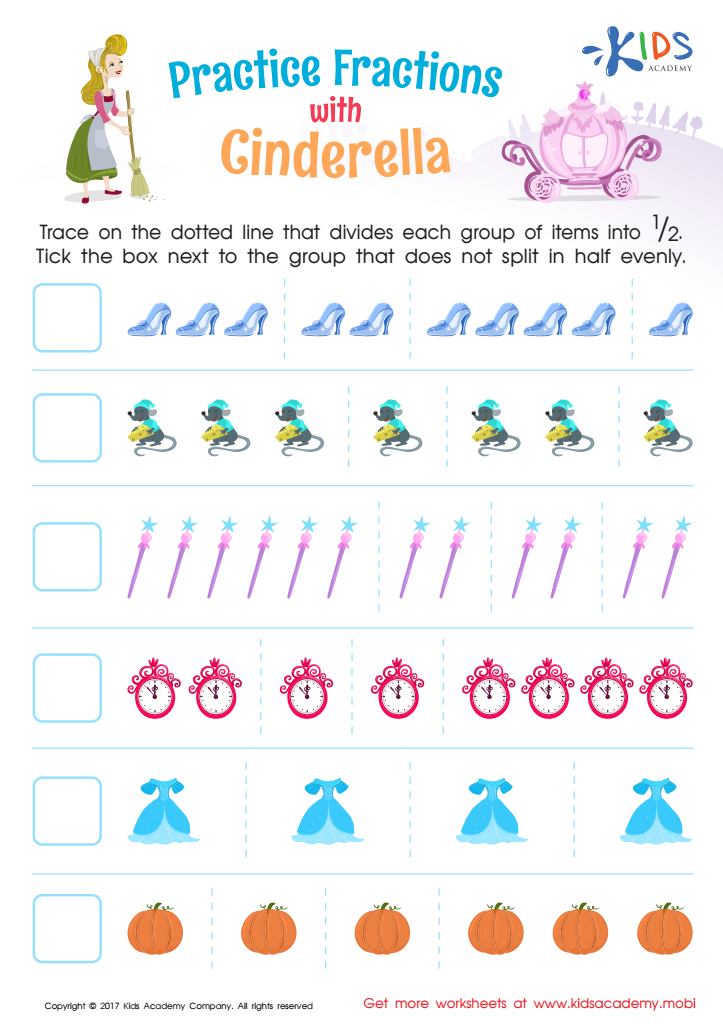

Fractions: Cinderella Printable
Understanding fractions, addition, and subtraction is essential for children aged 4-6 as it lays the foundation for their mathematical skills and overall cognitive development. At this early stage, children begin to grasp basic concepts of part-whole relationships through practical experiences. Engaging with fractions helps them comprehend how numbers relate to one another, fostering critical thinking.
For parents and teachers, promoting an understanding of fractions can enhance children's problem-solving abilities. By introducing simple fractions through hands-on activities, such as sharing snacks or dividing shapes, children learn to visualize and internalize mathematical principles. This kinesthetic learning experience improves their ability to retain concepts over time.
Furthermore, early exposure to addition and subtraction within the context of fractions empowers children to become more proficient in mathematical reasoning. It boosts confidence as they tackle increasingly complex tasks in future grades. Moreover, as mathematics is foundational to many fields, reaching competency at an early age opens doors to better educational opportunities.
In conclusion, by investing time in teaching these early concepts, parents and teachers are not only enriching children's understanding of mathematics, but also nurturing a lifelong love of learning, critical skills that will benefit them in all areas of life.

 Assign to My Students
Assign to My Students
















